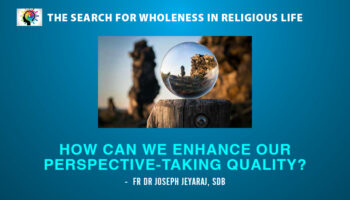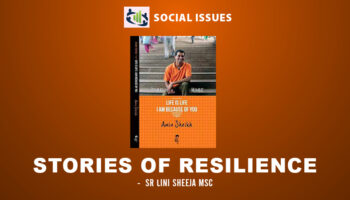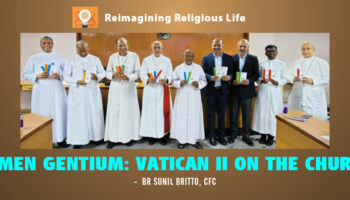This issue has two cover stories—on a much-needed form of care that any of us may need one day. Read them and be moved by what good people are doing for sick people beyond cure. So many, including some rejected by their families, have a peaceful and pain-free end in a loving setting because of palliative care.
* * *
When teaching English to young Salesians, and later training M.Phil. and Ph.D. students in research methodology, I would explain to them the qualities of good writing.
Good writing is marked by seven C’s. It is correct, clear, concrete, creative, competent, critical and comprehensive.
CORRECT: Good writing should not contain mistakes in spelling, grammar, syntax, content or punctuation. It should be, as far as competent judgement can tell, error-free.
CLEAR: I believe in what a famous professor of economics in Chennai once told his students, “If you know economics, you should be able to explain it to the autorickshaw driver.” What we say or write should be clear, not confusing. And it should be intelligible to the least educated members of our audience.
CONCRETE: “She forgave and hugged the police officer who had killed her son and burnt alive her husband” is a more gripping piece of writing than “Many people forgive those who have done them harm.” Jesus’ parables are concrete and graphic. No wonder they are much better remembered than St. Paul’s Letter to the Romans—or most sermons.
CREATIVE: We can be creative in any human activity—in cooking, cracking jokes, arranging flowers, designing a dress, or in writing. Even the most creative musicians use the same seven notes. The best writers use the same words found in the dictionary—and create masterpieces. Don’t repeat or imitate; be an original!
COMPETENT: Know what you are talking about. If not, consult those who know.
CRITICAL: It means to look at both sides of a controversial issue. Don’t simply repeat an opinion, nor hide behind clichés. Think for yourself.
COMPREHENSIVE: As far as you can do in the time and space available, give a complete picture.
We, at MAGNET, are trying to produce a magazine of quality. We choose competent experts for our columns. Every article, even when written by specialists, is checked by three of us—for content, style, grammar, spelling, punctuation. We avoid technical jargon and use simple language. We look for touching true stories and concrete experiences to illustrate ideas (as in this month’s two cover stories). How creative we are, is for knowledgeable people to judge. For critical assessment, we have a team of International Consultants on every continent who give us expert feedback. We try to be comprehensive within the limits of a forty-page magazine.
For producing a much-appreciated monthly, I have many people to be grateful to, especially our regular columnists, who do this service free, as a loving ministry.
Our hope is that you, readers, find MAGNET attractive, useful and inspiring. Apart from its psycho-social-spiritual contents, communities can hopefully use it to teach younger members creative writing in error-free and idiomatic English, meticulous editing and elegant design. This is what qualified people tell us. We await your feedback—both appreciative and critical. Together, let us make MAGNET something all religious look forward to, and can be proud of. What is worth doing, is worth doing well.
Fr Joe Mannath SDB
Editor
To subscribe to the magazine, click Subscribe





